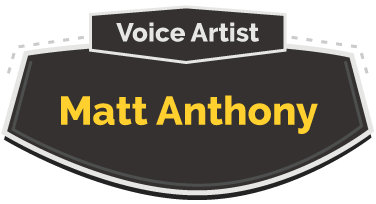Country Radio Imaging Voice Over
I didn’t grow up with Country music. What I mean to say is, it wasn’t a part of my introduction to music. As I became a pre-teen and discovered the ‘radio’, Country ‘cross-over’ hits were fairly common. There was Kenny Rogers, Dolly Parton, and others who you would hear fairly often on AT40. Although my parents were from West Virginia, they were never really fans of music. My father never gave me albums to listen to, nor did my mother sing songs to us as children.
But I loved music, and I loved listening to music. (and later, I enjoyed playing music.) My real introduction to Country music was as a result of obtaining my first on-air position in radio. It was at WTIG-AM in Massillon, Ohio. I was hired to be a weekend disc-jockey. And the first words out of the Program Director’s mouth during the interview was: “What do you know about Country music?”
I didn’t lie. “Virtually nothing,“ I replied. And I was happy to know that he, too, knew practically nothing about it before he had assumed his current position. But it didn’t take long to receive an introduction. Today, WTIG’s format would be considered ‘classic country’, but at the time it was a station that played virtually everything. This was also the late 80’s, which meant that the sub-chapter ‘new traditionalism’ was coming into vogue. The twangy growl of Dwight Yoakam. The gentle breeze of Kathy Mattea. And the addictive crooner-style of Randy Travis.
But WTIG had, in its on-air studio, plenty of vinyl from the likes of Tom T. Hall, Steve Wariner, Johnny Cash, Willie Nelson, Buck Owens, and, occasionally, even Hank Williams. While my DNA was comprised primarily of the Rolling Stones, The Who, Led Zeppelin, and The Beatles, I had to admit that some of the stories that comprised Country music’s lyrics stuck with me, and I would often drive home back to Akron twirling around the dial hoping to hear a tune from Patsy Cline or George Jones.
On the other hand, my wife’s upbringing was the complete opposite. Her mother (who actually resembled Loretta Lynn) sang and played guitar, both to her children and in bands on the weekends. It would be very common for adults to come over to her house on a weekend, several with guitars and banjos, and spend a portion of the evening picking, singing, and, of course, drinking. Understandably, some of those evenings didn’t end well. But enough of them did, and they made a huge impact on my wife, as well as on her music upbringing.
Country has changed fairly drastically. The image of the presentation is far more in line with contemporary hit radio. This makes complete sense. It remains one of the most popular formats on both terrestrial radio and all other music platforms. But while all formats go through a maturation process, Country, even with all of its sub-genres, is one of those formats that has a tendency to honor its roots. It isn’t afraid to hearken back to the innovators who gave birth to its various incarnations.
As a voice-artist, I enjoy finding a common ground within all of its rich history. I like the historical aspects of this form of music, especially since its roots are widespread. Its various permutations can be traced to multiple countries, to multiple instruments, and to multiple influencers. I mean, is there a more soulful wail than the one that comes from pedal-steel guitar? Just a few notes or small runs placed perfectly in the middle of a refrain are enough to bring tears to your eyes! And, while I admire and appreciate the lineage of the format, I also appreciate where the format is headed and why it’s been necessary to experiment.
It’s my job as a voice-actor to try to find a ‘melting-point’ within the construct of this rich platform. This format that is so popular continues to chart new territory. It breaks new ground by continuing to be a cross-over phenomenon and, at the same time, continues to un-earth younger artists who have no problem at all showing off their admiration of Clint Black, George Strait, or Lee Ann Womack. Whether in simple image-liners, promos, weekend giveaways, or special programs honoring the military, my job is to brand a station’s commitment to this unique American style of music. Through serious reflection, humor, empathy, and, sometimes just have a darned good time, I see my challenge being one that harnesses everything that’s great about Country and re-focusing it so that the station that entrusts me gets to showcase everything that is GREAT about this extraordinary radio format called ‘Country’.
It’s my honor to play a role within this format, to help mold its application within the framework of a radio station, and to help that station to stand out amongst all of its competition.

